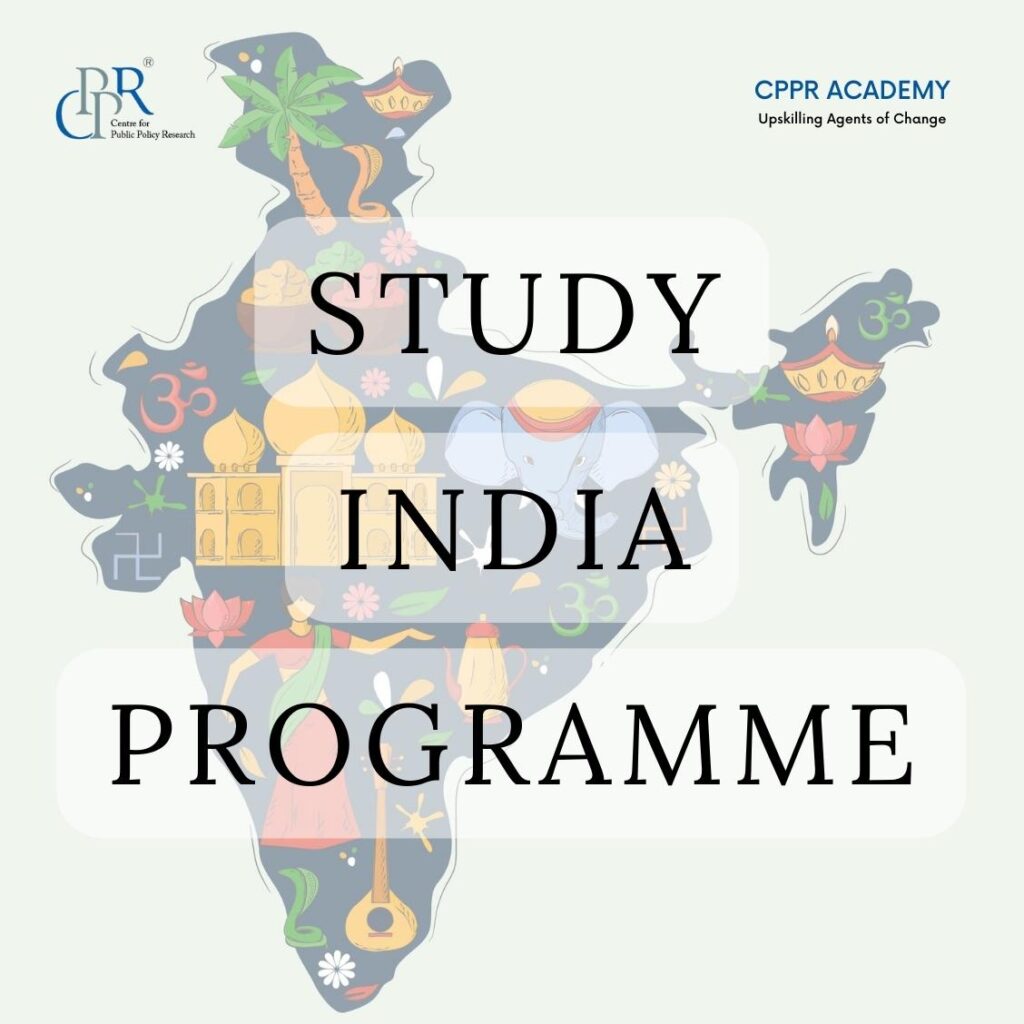
From the point of view of any observer, India is a network of socio-cultural relationships. India’s plurality and diversity are unique, and many factors go into creating large scale public policy for the country. Being the largest democracy, India’s core values are enshrined within our Constitution, and it relies on a complicated mix of central power and decentralised policy to govern itself. It is a case study in understanding socio-cultural differences in policy making. The institutional resilience of our governance structures is thus something that is of interest to students from various countries looking at learnings to inculcate in their practices abroad.
The Study India Programme is an immersive programme put together by the Centre for Public Policy Research for international students interested in India to learn about what makes our nation special and to immerse themselves in the society and culture of the nation. This programme aims to introduce the students to India and the various events that resulted in the multifaceted democracy that India is today. Over the course of the programme, the students will learn about the various political, economic, social, and cultural history of India.
CPPR’s Study India Programme (SIP) presents each of these activities in our interactive sessions and provides a space where the participants could be involved in all of it through specifically designed field labs that provide an observable, ground view of the various policy issues in India.
The programme will look at various topics in Indian polity, the Indian market and economy, society and culture, as well as India’s international relations and foreign policy. The modules are designed as a handful of courses that will look into various topics within these broad themes. Students will also attend field labs and sessions that are relevant to their learning.
Centre for Public Policy Research is open to collaborating with international institutions to create a programme suited for their students.
CPPR works in the areas of Urban Governance, Urban Transport, Economy & Public Finance, Education, Health, Election Studies, Governance & Law, International Relations, Defence & Security Studies, Technology Policy & Artificial Intelligence.
Please contact Shruthi Nair (Associate – Research and Strategic Relations) at [email protected] for further details.

